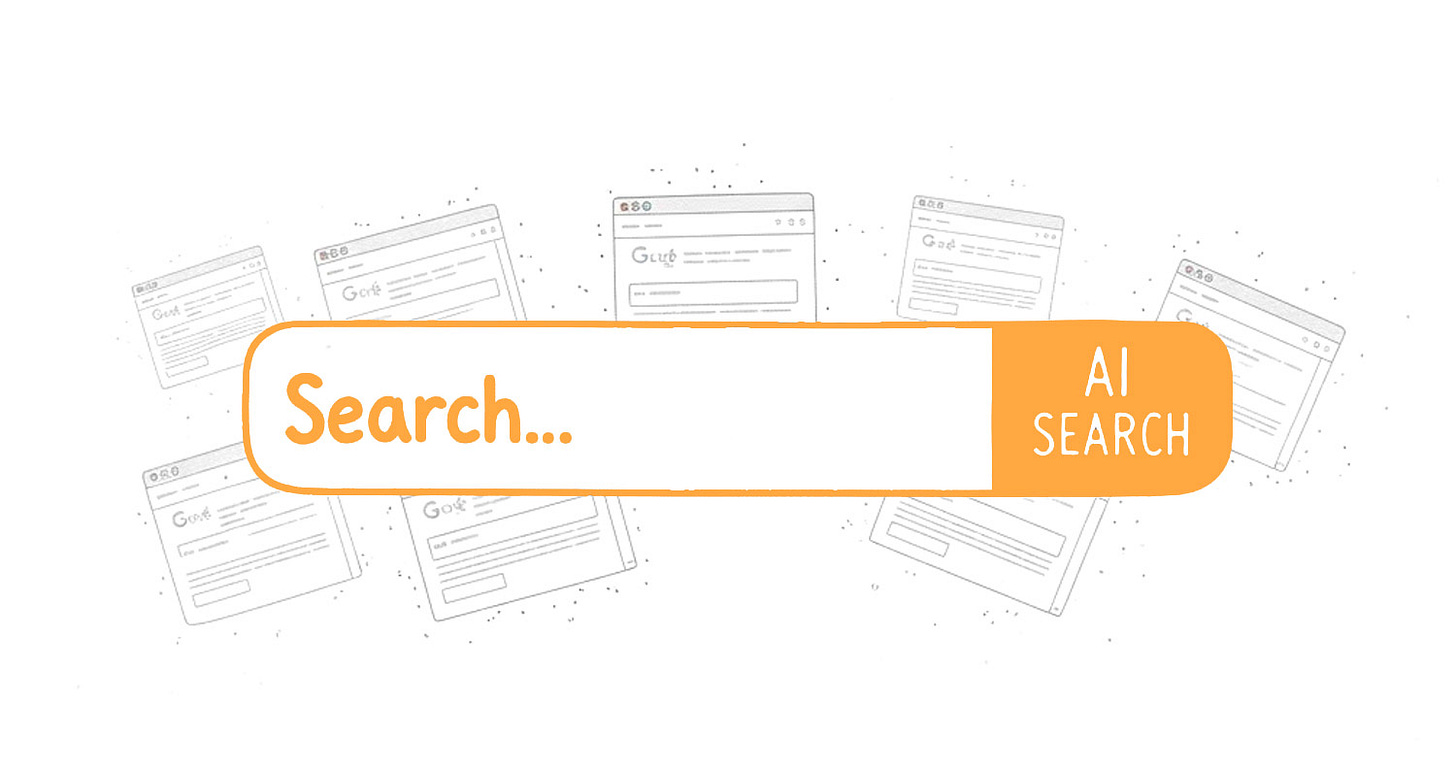ChatGPT Doesn't Know You? You're Losing Customers
While you optimize for Google, your customers ask ChatGPT. And it knows nothing about you. I'll show you a simple trick I tested on my own site - and it works.
Hey marketer! 👋🏻
Have you noticed that more and more people are opening ChatGPT or Perplexity instead of googling? “Find me a good graphic designer in London” or “What tool should I use for email marketing?” Instead of clicking through endless search results, they get a direct answer. And here’s the catch - what if AI tools know nothing about you? 🤔
The Bold Move That’s Actually Working
Recently, I stumbled upon a genius trick that some companies are starting to use. They’re adding buttons to their websites saying “Ask ChatGPT,” “Ask Claude,” or “Ask Perplexity” - basically letting AI give its opinion about them. At first glance, it seems risky. What if AI says something negative?
So I thought - let’s try it! I added it to my own website too. I now have a section “Still not sure if I’m the right fit for your project?” with three colorful buttons for different AI tools. A client can click and ask something like: “What do you know about Jan Barborik and his experience with web development, Shopify e-commerce, and online marketing?”
You know what? It works! People are intrigued because it’s different. And most importantly - they trust AI more than marketing copy. (Or they just like to get confirmation.) When ChatGPT says I have over 20 years of experience and dozens of completed projects, it carries more weight than when I write it myself.
Sure, I slightly influence it by how I phrase the question in the link. But it’s still fair - AI finds real information about me from my website, articles, and testimonials. Isn’t it great when you can confidently direct a client to verify your suitability through AI?
AI Search Is the Future (That Already Started)
And here’s the important part - AI tool creators are already experimenting with sponsored responses and shopping recommendations. They’re even running pilot partnerships with Shopify. Soon, AI tools might recommend specific products or services, similar to how Google displays ads today.
But for AI to know about you, you need to do something about it. AI learns from content it finds on the web. If your content isn’t there, or isn’t properly structured, it’s like you don’t exist. And that’s a problem because more and more people use AI instead of traditional search.
How to Write So AI Tools See and Recommend You
Forget classic SEO stuffed with keywords. For AI tools (sometimes called Generative Engine Optimization - GEO), slightly different rules apply:
💡 Answer Questions Directly
AI looks for clear answers. Use headings in the form of questions (”How to choose the right email marketing tool?”) and give a specific answer right in the first paragraph. No beating around the bush.
💡 Write Like a Human for a Human
Forget robotic “SEO language.” AI prefers natural, conversational style. Write how people actually ask - “How much does an e-commerce site cost?” instead of “price e-commerce development services.”
💡 Structure Your Content Properly
Short paragraphs, clear headings, lists, tables. AI needs to easily analyze your content. When it looks like a boring wall of text, AI skips it.
💡 Build Authority
Add information about yourself, your experience, references. AI gives preference to content from trustworthy sources. If you have 10 years of practice, write it there!
💡 Update Regularly
Old articles from 2019? AI ignores them. Add the date of last update and occasionally refresh content with new information.
💡 Be Original
Your own case studies, your practical experiences, specific examples from your work - AI loves that. Generic content like “10 marketing tips” has been done thousands of times.
💡 Use Structured Data
Schema markup isn’t just for Google. It helps AI understand what your content is about. FAQs, how-tos, reviews - you can mark everything structurally.
💡 Make Sure AI Can Read You
Check your robots.txt - some AI bots (like OAI-SearchBot from OpenAI) need permission to crawl your website.
What to Do Right Now?
Test Yourself - Ask ChatGPT or Perplexity about your company or service. What do they say? Do they know you at all? (And try it from someone else’s account too.)
Rewrite Key Pages - Start with your most important pages. Add FAQ sections with natural questions and answers.
Add Stories and Examples - Instead of general claims, show specific cases from practice. “I helped The Corner Café increase online sales by 40%” works better than “I increase online sales.”
Experiment with AI Widgets - Try adding an “Ask AI about our services” button to your website. It’s still fresh and people find it interesting. It brought me several interesting conversations with clients who appreciated the transparency.
The Future Is Already Here
AI search isn’t the future - it’s happening now. Every day, thousands of people use ChatGPT instead of Google. And if it doesn’t know about you, you’re losing customers.
The good news is that not many people are dealing with this yet. If you start optimizing for AI now, you’ll have a head start. It’s not complicated - just write quality, structured content that answers your customers’ real questions.
☕ Enjoying the content? Support the project!
Help me keep creating practical marketing content by buying me a coffee. Every cup fuels more articles, tips, and resources for fellow entrepreneurs like you!
See you in the next article.
Jan Barborik
P.S.: If you enjoyed this article, forward it to a friend.
If you're that sexy friend, subscribe here.





